Employing large datasets, machine learning algorithms have been rapidly changing the way the economy works across the world, powering movie recommendations, self-driving cars, and automatic translation services. Similarly, they have started to impact science, solving long-standing questions such as predicting protein structure or allowing inference of astronomical laws from observations. In the past, many technological developments on this scale have mostly benefited the Global North [1] and have helped to further stabilize post-colonial power imbalances. Current developments in machine learning and data science could further contribute to such imbalances. Large language models, for example, are being developed to rely on training resources that are unaffordable in many resource-constrained settings. The nations in Africa must therefore chart a more affordable path forward for their own contributions to machine learning (ML). This requires investments in building the capacity of Africans to engage productively with the state-of-the art in ML.
In the past, African nations faced many impediments to keeping abreast with developments in science and technology, including political instabilities, lack of funding, and inadequate infrastructure. For example, when agriculture in the Global North witnessed a dramatic increase in productivity in the 1970s with the introduction of automated tools, most African economies were left behind and until today, most continue to rely on manual labor for farming. This view on the African continent is still prevalent in the public perception in the Global North and is continuously reinforced through stereotyped reporting and the images used in everyday news.
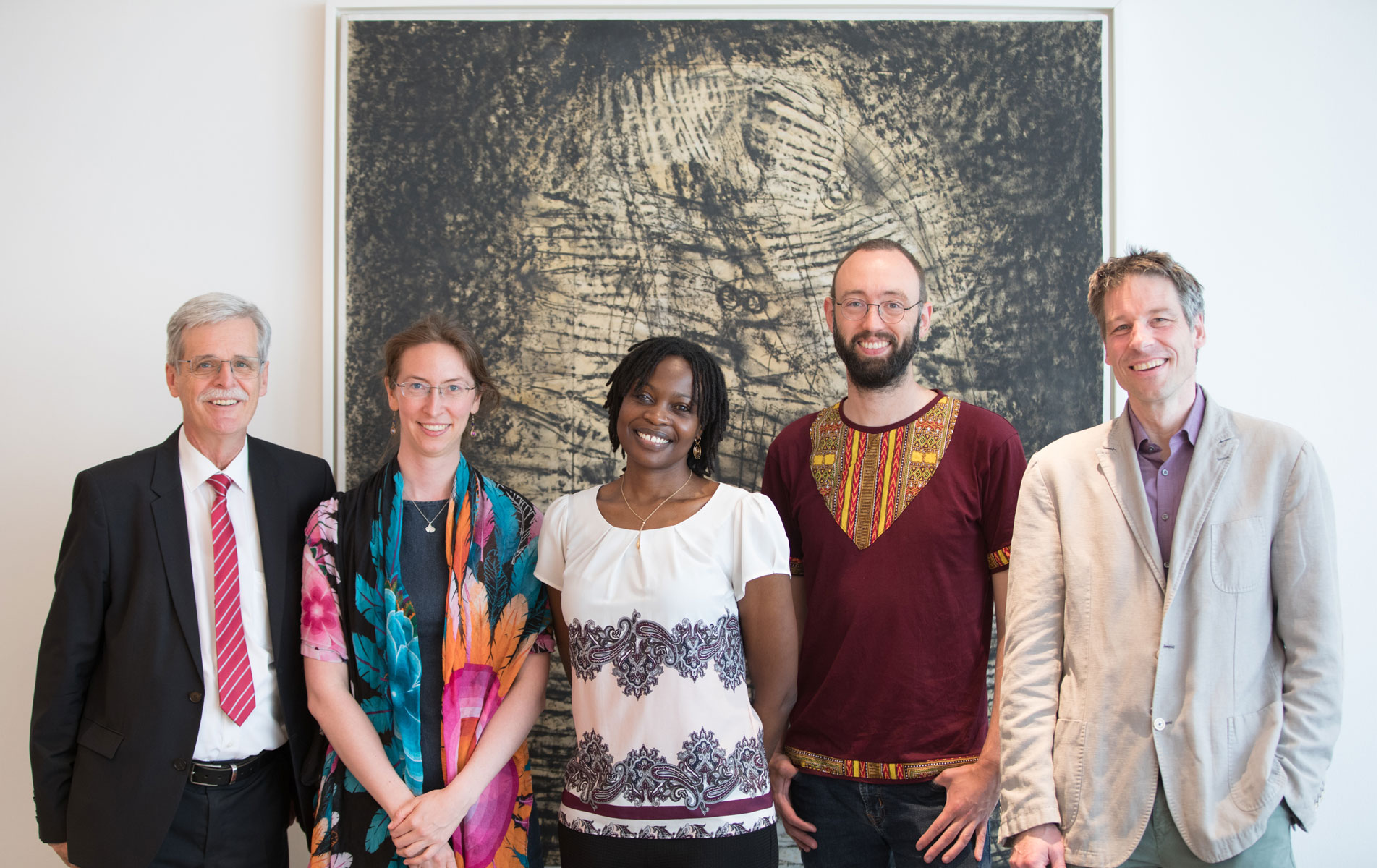
AIMS representatives visiting Tübingen in May 2022. From left to right: Former President of the University of Tübingen Bernd Engler, Franca Hoffmann, Audrey Namdiero-Walsh, Cluster speaker Philipp Berens, Cluster managing director Tilman Gocht. © FRIEDHELM ALBRECHT / UNIVERSITY OF TÜBINGEN
More recently, however, many African nations have seized opportunities for “leapfrogging” by finding new approaches and creative solutions that work in low-resource environments, rather than focusing on mimicking the industrial developmental trajectory of the Global North. For example, in telecommunications development trends, the landline coverage on the African continent lagged behind compared to global standards. However, instead of simply fixing the problem by installing landlines everywhere at a more rapid pace, many nations in Africa skipped the intermediate stages altogether, and leaped ahead with mobile technology, connecting today more than 50% of Africans. This has allowed new technologies relying on mobile phones to be invented and implemented, such as mobile money (“m-pesa”) in Kenya in 2007, which quickly found its way into everyday economies in Africa and worldwide. Today, this makes electronic payments the de facto standard even for small amounts, accounting for more than 60% of all mobile money transactions worldwide. Similarly, Africa has become a global leader in the use of drone technology for medical supplies delivery and humanitarian services, overtaking Europe and the US in the use of drones for everyday tasks. Africa’s capacity to innovate on this scale needs to be systematically strengthened. As the US, China and more recently Europe have invested heavily in national or supranational artificial intelligence (AI) strategies to make sure they maintain and extend their worldwide technological lead and not have to rely on each other, it has become clear that the nations in Africa need to make the political and financial commitments they need to keep abreast of, and even lead, current and future developments in this important field.
Self-empowerment is key
As machine learning and data science have rapidly become key technologies for innovation, interest in machine learning and data science education has also soared. Given the political and infrastructural challenges that persist on the African continent, what can it bring to the table? The continent has two big resources, not easily available to Europe, the US or China: its youth and its population diversity. 40% of Africa’s population are younger than 15 years, and are highly motivated to learn and improve their lives through education. Furthermore, Africa’s extraordinarily high ethnic and cultural diversity endows its peoples with a uniquely large diversity of experiences and perspectives, with documented enablers of creativity and gate keepers of Africa’s immense original contributions to music, literature and other areas. It is important to redirect some of this creative potential to science, especially machine learning, through education. While access to education across the African continent has improved dramatically in the past 20 years, the quality of training offered by the education systems still varies remarkably and is still mostly below standards in comparison to the Global North.
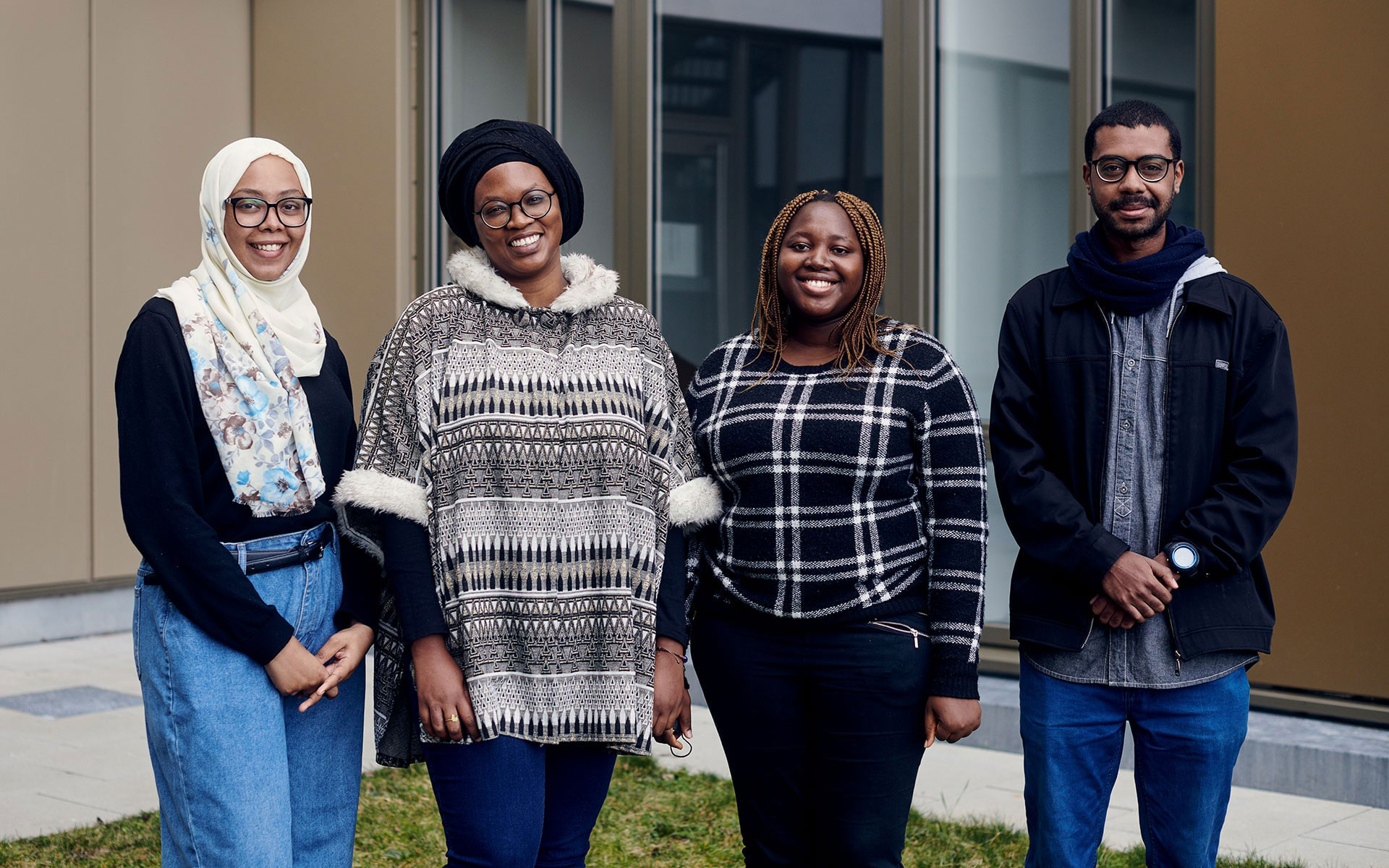
AIMS fellows during their stay in Tübingen, April 2022. © ELIA SCHMID / UNIVERSITY OF TÜBINGEN
Putting Africa’s challenges on the agenda, young Africans are seeking to equip themselves with the necessary ML skills to solve the continent’s problems – for example, there is a plethora of African languages which are typically not reflected in large corpus datasets used for training automatic machine translation algorithms and for which little written data is available. While for scholars in the Global North developing AI algorithms that can translate such languages remains a niche application, these skills would be life-changing in Africa, by not only facilitating communications in and with Africa, but also increase accessibility to existing knowledge and opportunities for people in Africa to play a stronger role in shaping the digital world and economy. Similarly, the issues in many health systems faced by Africans are not at the top of the agenda in the Global North, as health systems in these parts of the world face different challenges. Even if the questions appear superficially aligned, it is not obvious that the solutions developed in the Global North will easily transfer to the African continent. Consider for example the lack of access to clinical specialists in rural areas and associated telemedical or AI solutions. Mobile AI-powered devices could help close this access gap, but if they are trained based on data from the Global North, it is not obvious that they will also work in African settings. Among many other examples, local expertise with valuable indigenous knowledge is crucial for the mitigation of climate change, and to adapt agricultural practices and facilitate just green energy transitions, in a sustainable manner, and AI solutions need to be integrated with this existing expertise.
The role of science: Existing structures as starting points
Acquiring knowledge in machine learning and data science presents lower hurdles than other technologies to some extent, as many learning resources are available freely on the internet, and a large portion of tools are open source. Initiatives like the Deep Learning Indaba and Data Science Africa are introducing large numbers of young Africans to specific ML topics and tools. Nevertheless, structured education in mathematics, statistics and computer science is required to ensure that the people in Africa do not remain a consumer of the machine learning and data science knowledge and tools created elsewhere, but that the nations in Africa also become a leading creator of the same. Since its inception in 2003, this has been the mission of the African Institute for Mathematical Sciences (AIMS). AIMS is Africa’s first and largest network of centers of excellence for postgraduate training in mathematical sciences, including ML and data science. It runs five centers based in Rwanda, South Africa, Cameroon, Senegal and Ghana and takes a pan-African approach with students from all over the continent studying together. AIMS’ postgraduate programs such as the PhD in Data Science offered through its Quantum Leap Africa (QLA) Research Centre, or the African Masters in Machine Intelligence allow young and motivated Africans to learn what is necessary to contribute to further developments in the field and solve Africa’s challenges. AIMS’ 10-year strategic plan (2022-2032) envisions a scaling up of its programs, including satellite campuses that will increase the number of graduates to 700 students per year within 5 years and 2000 per year within 10 years. These graduates can serve as multipliers in the African economies and pursue ideas which may trigger the next leaping inventions. This was also the idea behind the successful German Research Chair program sponsored by the German government, which supports African researchers to lead research groups at AIMS centers and contribute to research-oriented teaching. In particular, the German Research Chair for Mathematics with specialization in Data Science was appointed to emphasize the urgency in developing capacity in Data Science already in 2016.
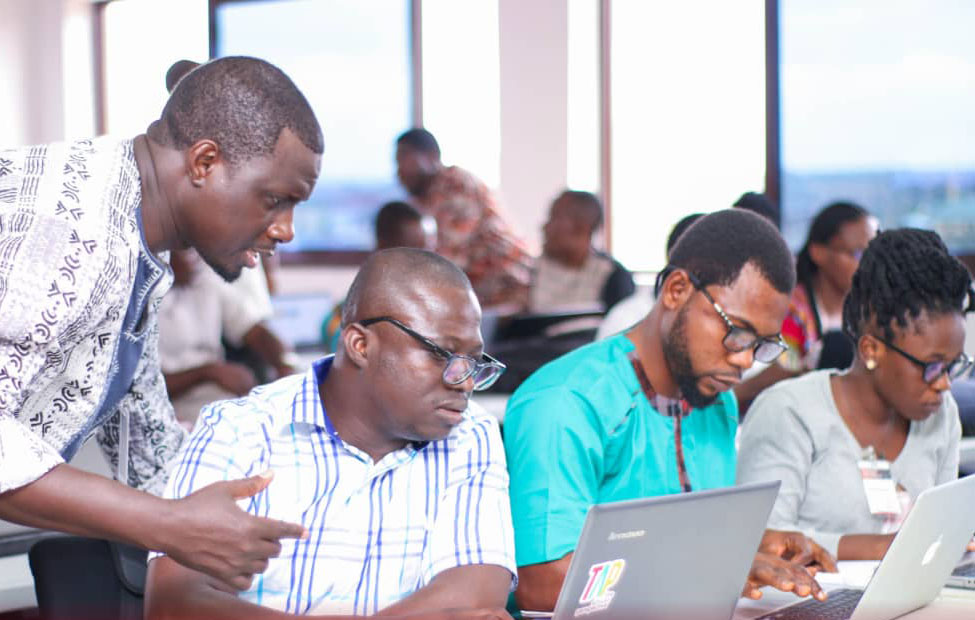
Bubacarr Bah with participants at a Data Workshop at AIMS, 2019. © AIMS
To make all of its programs a success, AIMS has always involved international professors and researchers and welcomed them to share their knowledge and expertise with young Africans. AIMS programs therefore provide students with professional networks within and beyond the African continent. In this spirit, the recently established PhD program in Data Science at QLA is designed to link young African PhD students with supervisors at African and international universities and bring them together at AIMS for further education and training. This kind of “capacity building” can easily have a neo-colonial flavor – so they will only work if all parties involved – from students, organizers to international researchers engage in a co-creation process and together decide what is needed and what is offered, while being aware of the potential power imbalances and unique exclusive strengths that all sides offer.
With this in mind, AIMS and two German Clusters of Excellence – “Machine Learning: New Perspectives for Science” in Tübingen and “The Haussdorff Center for Mathematics” in Bonn – have set up new fellowship programs. These programs give AIMS graduates the chance to work in a German research environment, experience different learning and working cultures and mature in a scientific, professional and personal level as well as move research in their host labs forward. At the same time AIMS graduates bring in their own perspectives on solving scientific challenges and increase the diversity of views in the hosting labs. On the German side, the fellowship challenges supervisors and colleagues to take on a global perspective and place their scientific questions also in the context of the problems and challenges that are of interest to the African nations and its peoples. Building on their individual experiences and the networks formed during the exchange, the alumni of the fellowship programs will help to disseminate mathematical, machine learning and data science knowledge and skills to other young Africans, with many AIMS alumni coming back to the AIMS centers to teach as tutors or instructors. In the Global North, they serve as Africa’s ambassadors, showcasing that the African continent has more to offer than what is usually stereotypically associated with it. With this, they also allow German institutions to access an additional talent pool not perceived as such in many parts of the world.
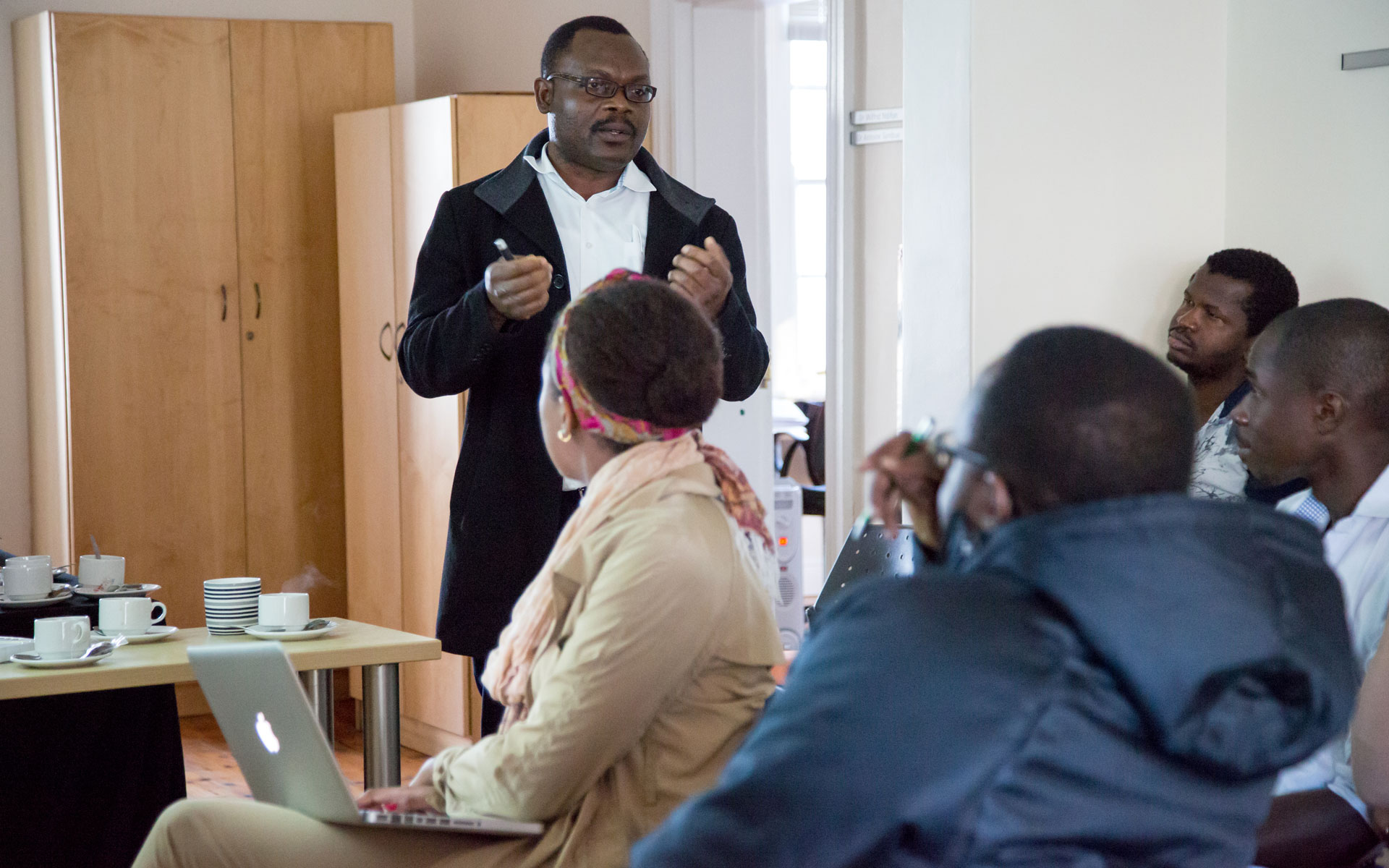
Wilfred Ndifon giving a talk, 2016.
But, fellowships with limited duration can only be a beginning of an eye-level collaboration for jointly tackling global problems like climate change, health inequalities or even the gender bias in data science and ML fields. These require technical experts from and on both continents ‒ Africa and Europe ‒ who can serve as mediators between continents. Thus, partnerships between AIMS and other institutions like the two Excellence Clusters will need to deepen in the future to establish longer term joint research projects and career paths for young and gender diverse Africans that have the future of their continent in mind.
[1] Global North here is understood as the economically advanced countries of North America, Europe, Australia, East Asia, etc.
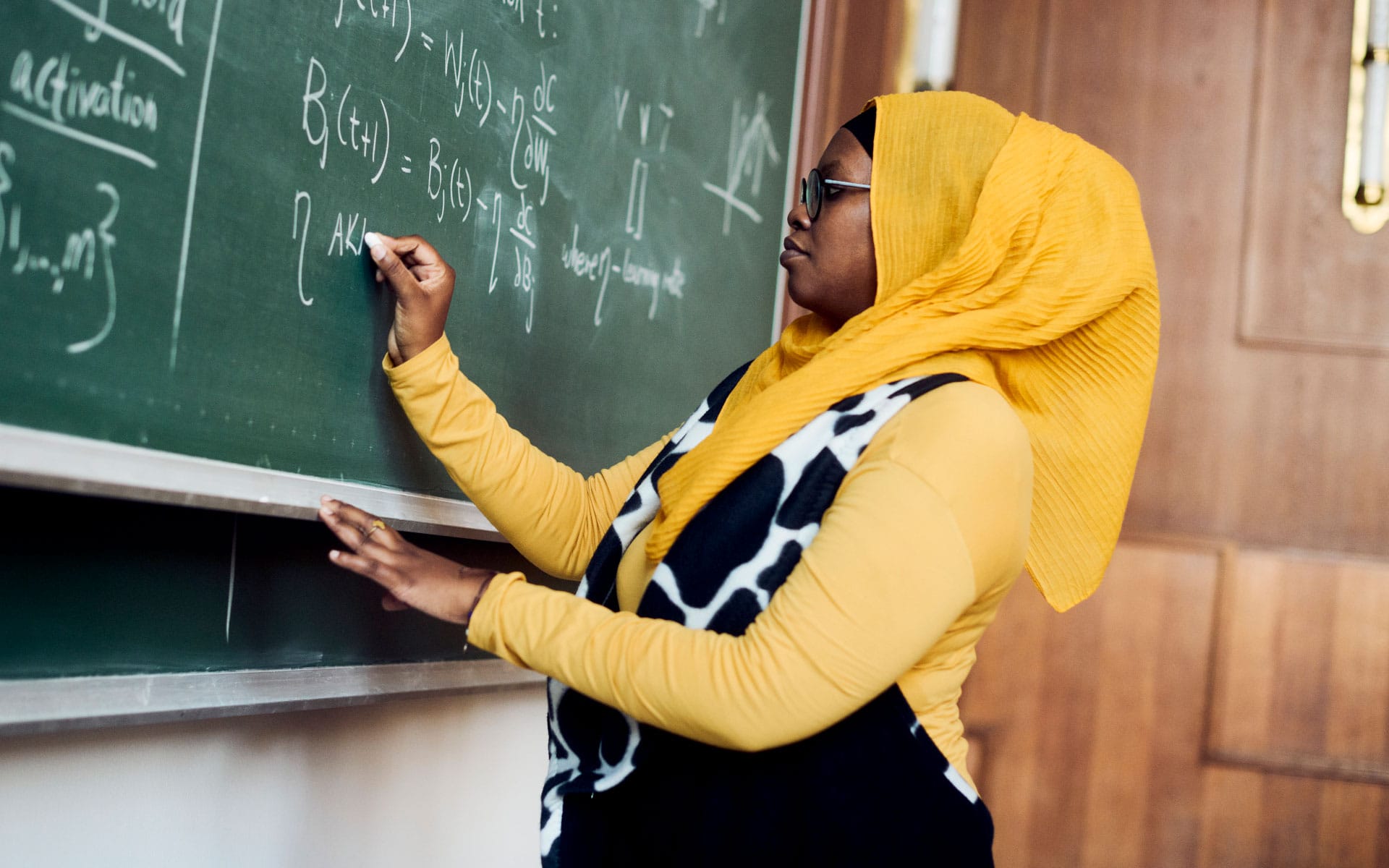
From Cape Town and Khartoum to Tübingen

Rooting Democracy in the Digital Age
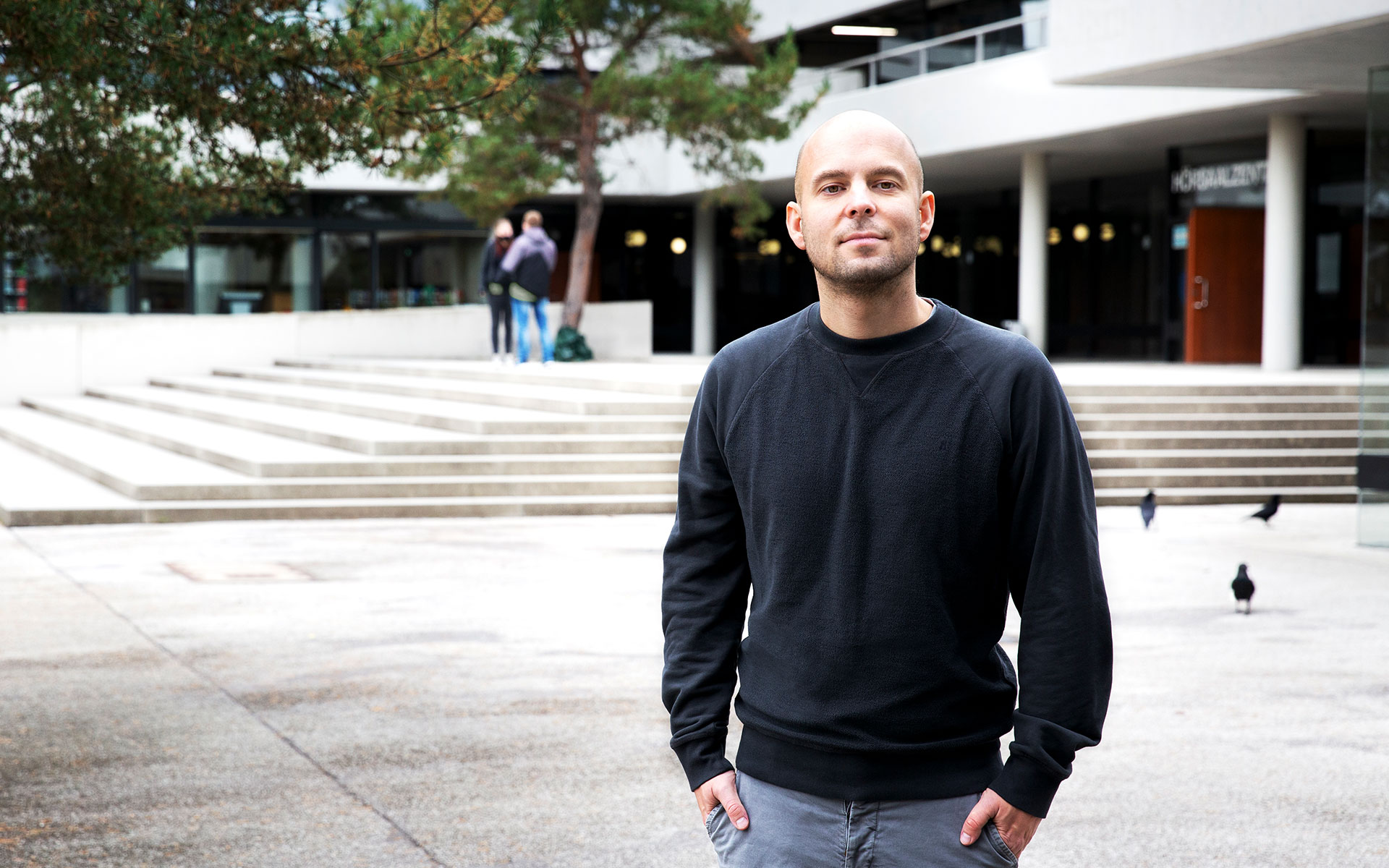
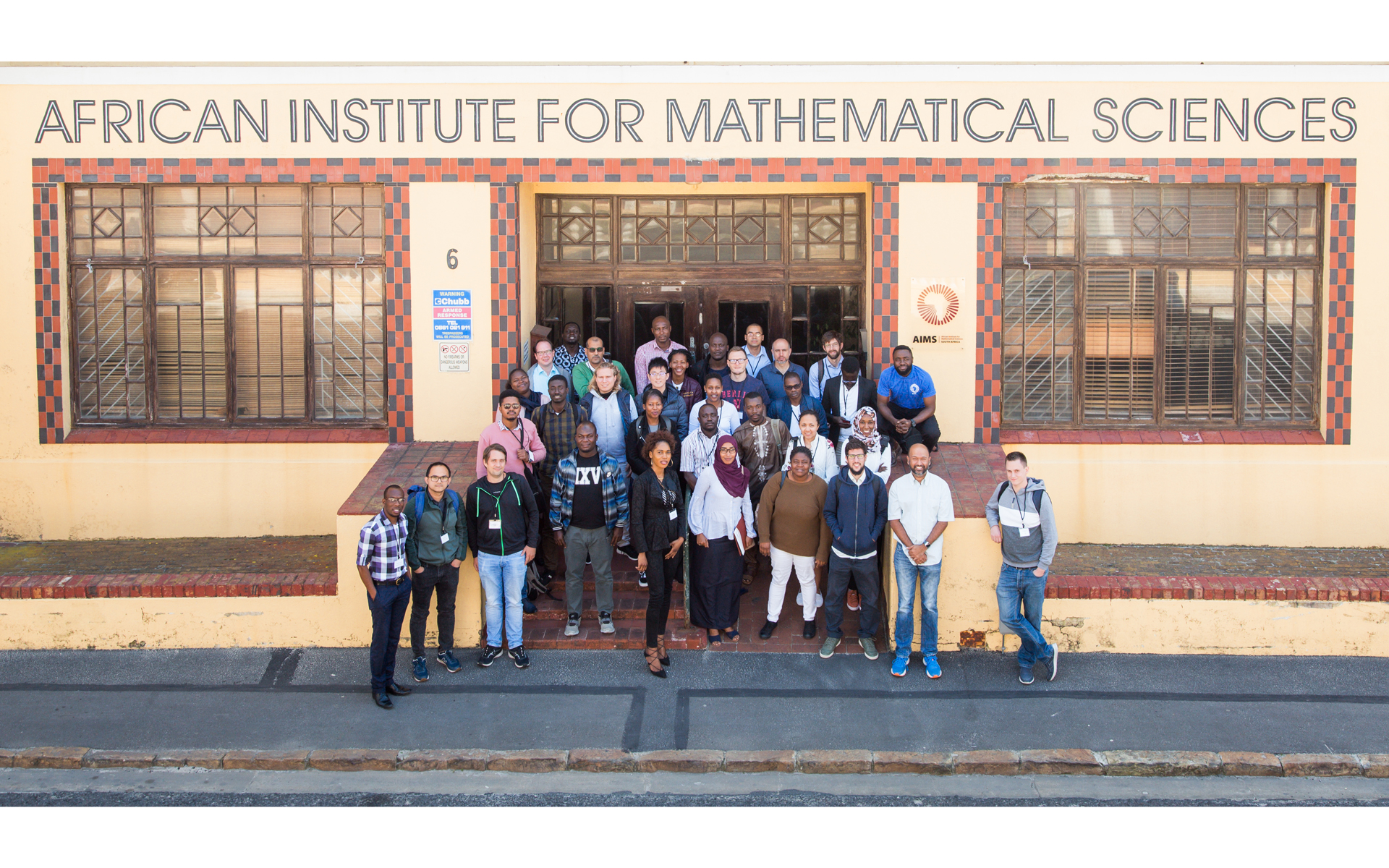
Comments
Ngong Charlotte Nabain, March 1, 2023
I am a data analyst and a data science enthusiast based in Buea Cameroon. With work experience in academic research assistance and data analysis but but currently learning python, R, Tableau, Ex analytics. Wish to be network and learn more in this global trending field.
Beltus Nkwawir, September 19, 2023
I enjoyed reading this piece as İ am looking into ways in which the African continent can catch up to the rapidly changing AI wave in the global North.
I'm a data scientist at the UNDP and PhD student at Istanbul Technical University originally from Cameroon and will love to contribute to move the yardstick one inch forward towards promoting data science and AI in Africa.
Happy to discuss further and create partnerships.
Best regards;
Beltus Nkwawir